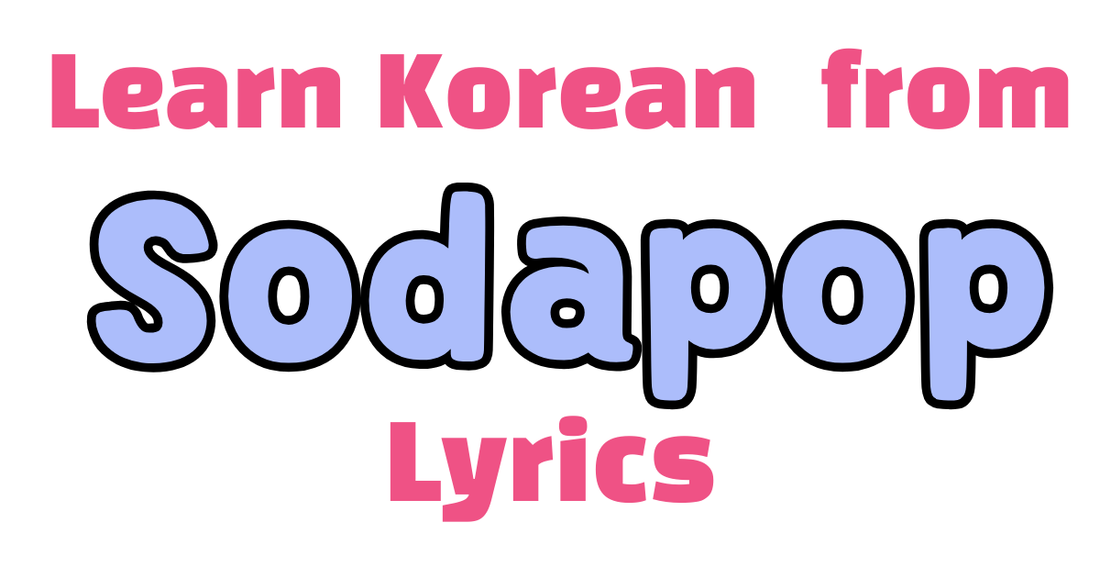
🎶 What Do “없잖아” and “있잖아” Really Mean in K-pop? | Learn from Sodapop
Share
If you’ve been watching K-pop Demon Hunters, you probably heard this fiery line from Sodapop:
🎶 지금 당장 날 봐, 시간 없잖아
🎶 넌 내거야, 이미 알고 있잖아
At first glance, the words seem simple.
But if you're learning Korean, these lines are PACKED with real, natural expressions — and a sound rule you NEED to know.
Let’s break it down 👇
🔍 What does it mean?
Here’s a simple breakdown of the lyrics:
“지금 당장 날 봐, 시간 없잖아”
→ Look at me right now. There’s no time.
“넌 내거야, 이미 알고 있잖아”
→ You’re mine — and you already know it.
Just two lines — but they express urgency, confidence, and emotion.
And those last words? 없잖아 and 있잖아?
They’re especially interesting!
🗣️ 없잖아? 있잖아? What’s the difference?
Let’s look closer:
없잖아 (eop-jjan-a) = You know there’s no… / We don’t have…
있잖아 (it-jjan-a) = You know there is… / Come on, it’s there…
These are casual, emotional ways to express what’s obvious — and get someone to agree with you.
Very common in spoken Korean and in music!
But the pronunciation doesn’t quite match the spelling… why?
📢 Korean Sound Rule: 경음화 (Tensing)
Here’s the secret:
In Korean, soft consonants like:
ㄱ, ㄷ, ㅂ, ㅅ, ㅈ
often become “tense” sounds when paired with certain other words.
This is called 경음화 (gyeong-eum-hwa).
So what happens?
없잖아 sounds like 업짜나
있잖아 sounds like 이짜나
That’s why it sounds stronger and punchier in K-pop songs!
You can think of it as:
| Spelling | Natural Pronunciation |
|---|---|
| 없잖아 | 업짜나 (eop-jja-na) |
| 있잖아 | 이짜나 (i-jja-na) |
This sound shift is totally normal — and learning it helps you understand native speech better!
🎧 Where else can you hear this?
Almost everywhere in Korean media:
Dramas
Variety shows
Music
Even casual conversations!
Once you learn to recognize 경음화, you’ll start hearing it all the time.
💬 Try saying it out loud:
🗣 “시간 없잖아!” (There’s no time, right?!)
🗣 “이미 알고 있잖아~” (You already know it~)
Sound familiar now? You’re catching real Korean rhythm!
🏁 Wrap-Up: Sound like a native, one lyric at a time!
Want to speak like your favorite K-pop characters?
Understanding little sound changes like 없잖아 → 업짜나 can help your Korean sound way more natural — and help you listen better too.
Stay tuned for more “Korean from K-pop” lessons!
📩 Want more? Subscribe to our newsletter for beginner-friendly tips based on songs, shows, and everyday Korean.
👉 Got a lyric you want us to break down? Let us know in the comments below!
